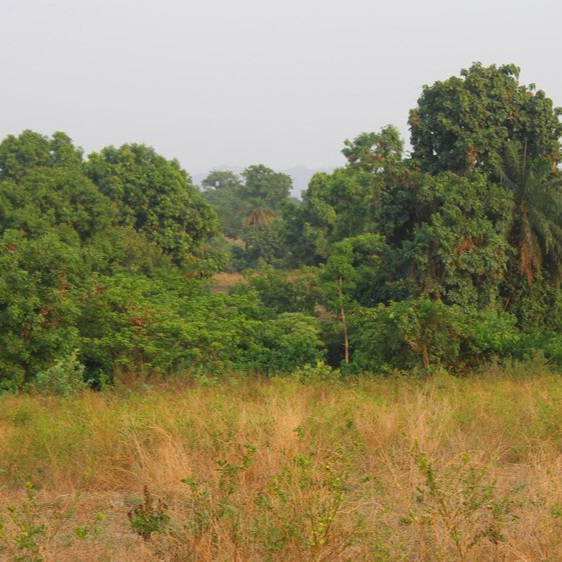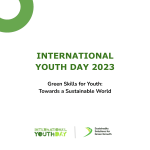In Kano, Nigeria, a youth-led organization is bolstering the resilience of local communities through a forest restoration endeavor. This marks the commencement of the 'Voices from the Frontline (Phase-II)' narratives, presented by ICCCAD and GRP.
Nigeria confronts an array of climate change challenges spanning sectors. From escalating floods and intensifying droughts to rising mean annual temperatures and sea-level elevation, local communities are directly impacted. Kano State, positioned in Nigeria's northern region, stands particularly vulnerable and is already grappling with climate change's adverse consequences. Situated in the Sahel, south of the Sahara Desert, the state's 15 million inhabitants face intensified environmental degradation, which has diminished ecosystem resources and the coping abilities of rural communities. Nonetheless, locally-driven adaptation initiatives are instigating change. These projects, led by young individuals, are equipping Kano State with the capacity to foster climate-resilient development, thereby addressing adaptation challenges head-on.
Nasreen Al-Amin is among the young trailblazers championing the fight against the climate crisis and aiding marginalized communities in fortifying their resilience through community-led adaptation projects. Like many of her peers in Northern Nigeria, she has witnessed firsthand the trials faced by those at the forefront of the climate crisis and insurgency.
Nasreen recalls, "Seeing food supply and the economy in communities adversely affected by deforestation, land degradation, drought, desertification, and worsened by climate change, inspired me to take action on climate issues."
Her journey began with thorough research into sustainable solutions and identifying a local community within her state to assist. This led her to initiate a tree planting program with aspirations for broader impact, ultimately resulting in the founding of the nonprofit organization Surge Africa.
Under the banner of Surge Africa, Nasreen and her team introduced the Jeji Restoration project, co-funded by Plant-for-the-Planet. The Jeji Restoration project supports climate-vulnerable communities through tree planting efforts, named 'Jeji' after the Hausa word for forest, aligning with their vision to rejuvenate forests within their community and across Africa. The project is concentrated in Kumbo, initially a degraded region within Kano State.
Before launching the project, they engaged community members to comprehend their challenges, designing the project based on their feedback. Nasreen elaborates, "From our interactions with the community members, we learned that their main priorities were not only to restore trees but also to secure a source of income and livelihoods to support their families." Local community leaders played a pivotal role in the project's success by mobilizing community members and aiding in its implementation. Permissions were sought from these leaders to proceed with the project.
Through the Jeji project, local community members received training to lead and execute tree planting activities, earning financial compensation for their work. Training materials were delivered in local languages to ensure accessibility for all, fostering a sense of ownership and providing a source of income and sustenance. Nasreen and her team, in collaboration with local community members, rejuvenated the land by planting 4,000 seedlings at a rate of 500 per hectare.
Nasreen played a crucial role in involving marginalized communities in the Jeji Restoration project, which was designed to provide a sustainable source of livelihood for 1,000 individuals affected by conflict and environmental issues. This endeavor offers them income, shelter, and sustenance through landscape restoration.
As the project scales up, Nasreen envisions it becoming self-sustaining. She emphasizes, "The larger the coverage, the more opportunities for land regeneration," highlighting the project's potential to sustain itself through forest resources and crop yields harvested by local communities, eliminating the need for external funding.
Nasreen acknowledges the project's support from the community and government but cites financial constraints as their primary challenge. She aspires to secure institutional backing for policies that ensure the conservation of restored lands. To magnify the project's impact, she seeks further collaboration with relevant government agencies to bolster landscape governance efforts. Nasreen underscores the necessity of providing local indigenous organizations with more substantial opportunities and financial resources, extending beyond short-term grants.
From this initiative, Nasreen has gleaned the importance of community cohesion and inclusion in project implementation. She emphasizes that with the right strategy and execution plans, sustainable landscape restoration is achievable. Nasreen concludes, "There are many innovative ways to support frontline communities, and these innovations do not have to be high-end, technological, or expensive. Sometimes, working with nature simply requires understanding it and creating practical solutions in harmony with its ecosystem."
About Nasreen Al-Amin
Nasreen Al-Amin is an environmental sustainability practitioner with years of experience in the development and communications sectors. She works with local and international institutions to develop tailored programs and interventions that address Africa’s development needs. She’s the founder of Surge Africa, a non-profit organisation that works closely with governments and stakeholders to situate climate-resilient policies and practices at the local level in Nigeria and Africa at large, through educating local communities about climate change and its effects on them and how to become climate resilient. Surge Africa does so by running community-level workshops to advocate and train farmers about nature-based solutions like agroecology/agroforestry that are affordable, accessible and scalable.
Nasreen’s recent work is in climate media where she launched the platform Surge X Media to address the data gaps on climate change in Africa. The platform incorporates visual data and storytelling as instruments to create awareness, educate and build movements. It uses media technology to generate new sets of visual data that can be used as information to drive constructive conversations, and as evidence to influence policy change and climate governance.




